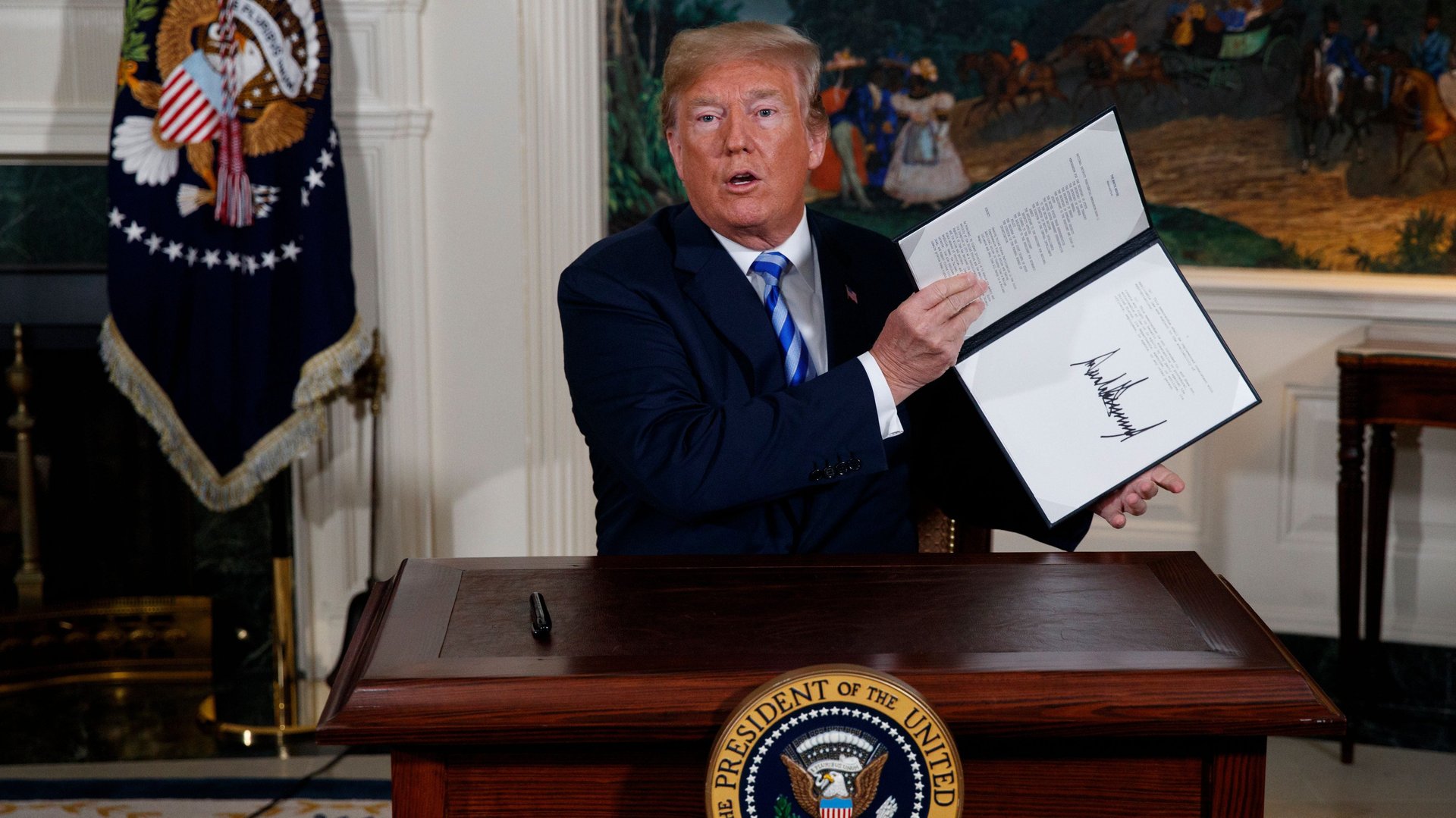Trump’s Iran sanctions are a bitter blow for giant European companies
Donald Trump’s decision to exit the Iran nuclear deal and reinstate sanctions could cost some of Europe’s biggest companies billions.


Donald Trump’s decision to exit the Iran nuclear deal and reinstate sanctions could cost some of Europe’s biggest companies billions.
The US Treasury has promised “wind-down” periods of 90 to 180 days to let firms extricate themselves from agreements with Iran and avoid US sanctions. That will do little to assuage the European companies that have billions on the line in recently cut contracts with the country of 80 million people.
Energy giants like Total (paywall) and Royal Dutch Shell have lucrative agreements to work with Iran, while Renault has a joint venture to make 150,000 cars a year, and Franco-German plane maker Airbus has reportedly delivered just three out of 100 jets promised to Iran, in a deal worth billions.
Trump’s decision comes after an intense, failed lobbying effort by French president Emmanuel Macron, German chancellor Angela Merkel, and British foreign secretary Boris Johnson to keep the US in the international deal. In a joint statement, the three countries’ leaders expressed “regret and concern” and insisted they will stay in. The statement, which didn’t address how sanctions might hit European firms, highlighted that they consider the Iran deal the “binding international legal framework” for resolving the country’s nuclear program.
Any European companies with a US arm that agreed a deal with Iran would now be violating US law, says Adam Smith, a lawyer at Gibson Dunn who is a former Treasury sanctions official. Those not active in the US could be hit with a “with-us or-against-us sanction,” in which Washington would tell the company that if it wants to keep trading with Iran they can’t trade with America, Smith said.
The only way around the sanctions would be for the Trump administration to grant European companies waivers. Executives at Total already have reportedly met (paywall) with French officials to push them to lobby the US.
America’s Boeing was originally granted a waiver for a deal to sell 110 planes to Iran, worth around $20 billion. It’s unclear whether that is now under threat. In a press call today (May 8), US national security advisor John Bolton declined to comment on whether any companies would get a waiver.
After Nov. 4, “all the U.S. nuclear-related sanctions that had been lifted under the JCPOA will be re-imposed and in full effect,” the US Treasury said.
That means banks will be prohibited from doing any business in Iranian rials or purchasing and selling Iranian sovereign debt. Manufacturers will be prohibited from selling Iran aluminum, steel, coal, and software. The entire Iranian auto industry is sanctioned, as is its petrochemical industry, and investments in ports. Even importing Iranian carpets into the US will be prohibited.
In response, European countries could adopt a “blocking regulation,” the EU ambassador to the US explained earlier, which has been used in the past to allow EU entities to ignore US sanctions on Cuba. It could also push for non-US courts to decide any legal conflicts.
Lianna Brinded contributed to this report.